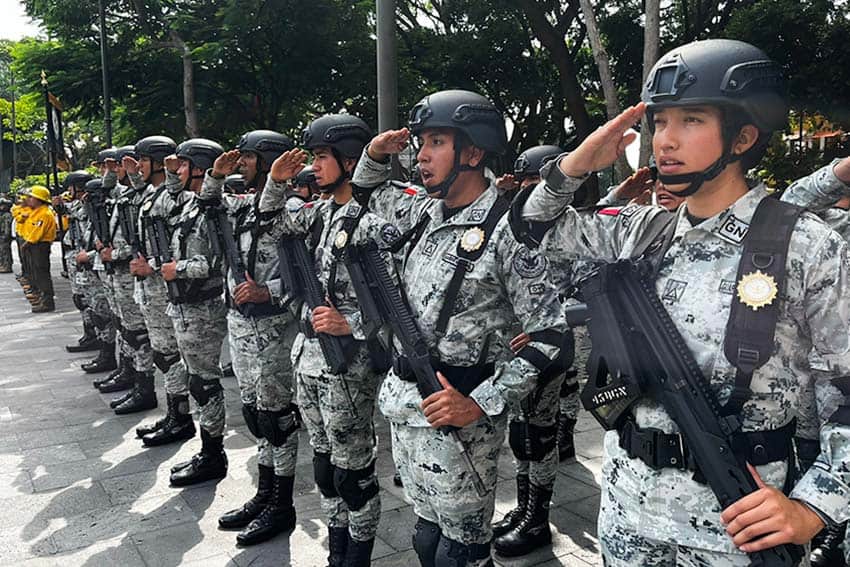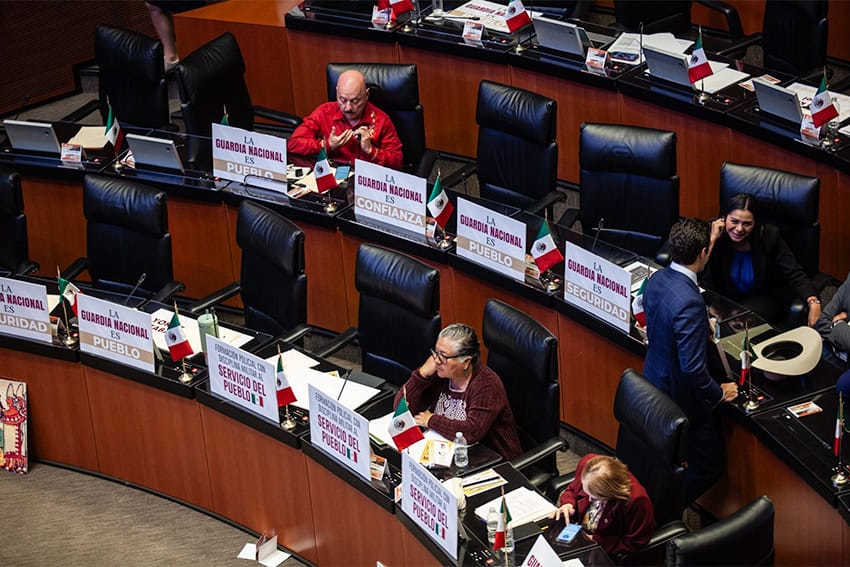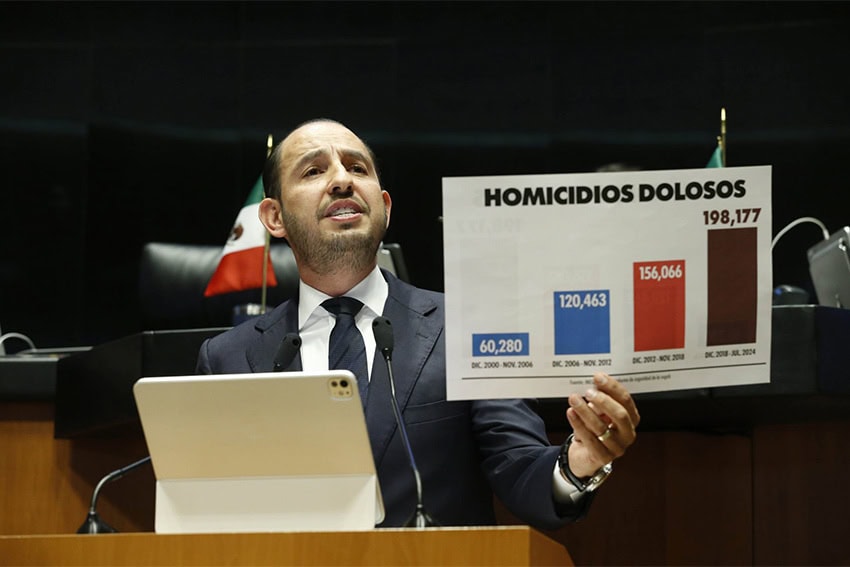Mexico’s Senate passes controversial National Guard reform

After a long overnight debate, Mexico’s Senate approved a constitutional reform to place the National Guard under military control, as well as endowing it with investigative powers.
The Senate approved the bill with 86 votes in favor, 42 against and zero abstentions. The vote was split almost perfectly along party lines, with the Morena Party and its allies making up 85 of the favorable votes.

As with the recently approved judicial reform, Senator Miguel Ángel Yunes gave Morena the 86th vote it needed to complete its supermajority and pass the constitutional bill. (Yunes, a former National Action Party (PAN) member, was expelled from that party after his vote on judicial reform.)
Next, the bill needs the ratification of at least 17 state legislatures to become law, a likely scenario, as the Morena coalition commands majorities in the congresses of more than 20 of Mexico’s 32 states.
The constitutional reform puts the National Guard, currently a civilian security force, under military command.
Assuming ratification is successful, the Guard will become part of the National Defense Ministry (Sedena). The approved version of the reform also gives the Guard the power to investigate crimes “within the scope of its jurisdiction,” similar to public prosecutors.
The bill also adds language to the Constitution specifying that “soldiers, marines, National Guard members, foreign service personnel, public prosecutors, forensic experts and police force members will be regulated by their own laws.”
President López Obrador has pushed for the National Guard to be under military command since its creation at the beginning of his administration. Lacking a supermajority to make constitutional reforms, the president tried to transfer control of the Guard to the military through legislative statute and presidential decree. That effort was stymied by the Supreme Court, which ruled the move unconstitutional.


But then this month, a new congressional term began, with newly elected legislators who are overwhelming members of the Morena party members or its allies, giving the president a supermajority in the Chamber of Deputies and a near-supermajority in the Senate.
With five days left in his term, AMLO is making the most of his remaining time to push through constitutional reforms that didn’t move forward under the previous Congress.
Debate over the controversial reforms has been raucous and lengthy. The Senate debate over the National Guard reform started at 10 p.m. Tuesday and continued through the night. The bill wasn’t approved until 6:20 a.m. Wednesday morning.
PAN legislators spoke out repeatedly against the militarization of the National Guard.
“The security strategy of this government, including the National Guard operating today, has the country on fire,” PAN party president Marko Cortés said on the social media platform X, summing up an impassioned speech he gave during the all-night legislative session. “…
“Militarization of security is not the solution; this government’s own numbers show how homicides and violence have increased.”
Morena senators and allies insisted that placing the National Guard under Sedena’s control did not equal militarization but at the same time argued that the force — created by President López Obrador in 2019 — would benefit by being run with “military discipline,” according to signs of support displayed by some senators in the marathon session.
Senator Yunes asked rhetorically “if anyone really could defend the idea that it is possible to combat organized crime with only local police, without the support of the armed forces.”
Senator Omar García Harfuch, who will become Mexico’s federal security minister starting Oct. 1, also denied the accusations that the Guard was being militarized under the reform. The Security Ministry, a civilian government agency, will still lead the country’s strategy for combating crime and violence, he said, arguing that placing the National Guard under the Defense Ministry’s control will not militarize the nation’s law enforcement.
García Harfuch also revealed upcoming changes for the Security Ministry under his leadership, La Jornada reported. A new Department of Intelligence and Investigation will be created, and the National Intelligence Center will come under the Security Ministry’s control. The two agencies will support the National Guard and state governments in criminal investigations.


To pacify Mexico, García Harfuch said, what’s needed is a long-term plan and strong security institutions, something Mexico lacks “with the exception of the Navy Ministry and the National Defense Ministry.”
Moving forward, he said, the National Guard will develop “under the model of successful police corps in Chile, Italy, France and Spain, created in the heart their defense ministries” and will have “strict regulation to guarantee respect for human rights—but with military discipline and coordination.”
With reports from El Financiero and La Jornada
Source: Mexico News Daily

